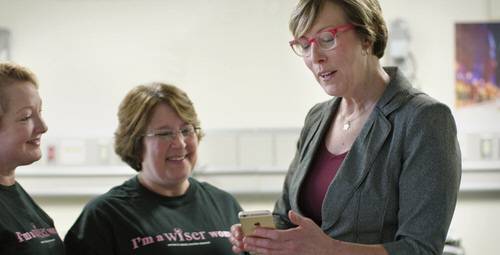
At Monday’s launch event for a series of new products, Apple spent a surprising amount of time on a subject most would find boring: medical research. Apple introduced a new software framework, ResearchKit, which scientists and doctors are already using to poll patients for health data.
ResearchKit will be available to developers beyond those early adopters in April.
It’s a noble cause, and perhaps Apple feels it burnishes its corporate image and boosts employee morale to talk about efforts to improve people’s health. The problem is Apple’s track record in health and fitness software. Which is, so far, egregious.
See also: Apple’s Health App Is An Embarrassment
There’s clear promise in using self-reported data in medical science. Researchers are mining calorie-counting data from MyFitnessPal to understand what leads to sustained weight loss, for example. And it’s far easier and cheaper to get people to use a device they already have and a free app than to sign them up to use specialized equipment, write in paper diaries, or visit offices to participate in traditional studies.
As an example, Apple offered up an app that used iPhones to test for Parkinson’s by measuring patients’ ability to tap targets on the phone. It’s a sensible idea, though not one that particularly required a new software framework to deliver—it just leverages existing sensors in the phone.
The problem with ResearchKit is that Apple’s HealthKit software and its companion Health app are horribly buggy, hard to use, and unappealing to consumers. They don’t even come close to our expectations for Apple products. They come from some alien planet closer to Microsoft. Since ResearchKit is built on top of HealthKit, then that means it has shaky foundations indeed.
One way to look at this is that Apple is acknowledging that HealthKit-enabled apps aren’t catching on with consumers, and so it’s turning to medical research as a justification for the effort it’s poured into trying to enter the health and fitness market.
The grace note on all this is that Apple is releasing ResearchKit as open source. That means someone else—not the software engineers behind Apple Health—might fix its bugs. It also means that ResearchKit-enabled apps might find their way to Android and other platforms, which would be a boon for medical science, if not iPhone sales.
Photo via Apple









